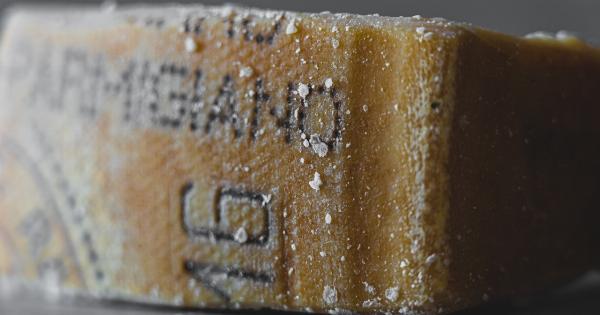Migraines are a debilitating type of headache that affects millions of people worldwide.
Alongside the throbbing pain, sensitivity to light and sound, and overall discomfort, individuals who suffer from migraines often find that certain foods and drinks can trigger or worsen their symptoms. Understanding these triggers and making conscious changes in your diet can significantly alleviate the frequency and severity of migraines.
In this article, we will explore 30 common foods and drinks that migraine sufferers should avoid to prevent migraine attacks.
The Role of Diet in Migraine Management
Eating a balanced and healthy diet is crucial in managing migraines. Several studies have indicated a close connection between diet and the frequency and severity of migraines.
While triggers can differ from person to person, certain foods and drinks have been identified as potential culprits for migraines. By recognizing and avoiding these triggers, migraine sufferers can potentially reduce the frequency and intensity of their migraines.
Foods and Drinks to Avoid
1. Caffeine: While low to moderate caffeine intake may help relieve migraines, excessive consumption can have the opposite effect. Avoid energy drinks, sodas, and excessive coffee intake.
2. Alcohol: Red wine, beer, and spirits have frequently been associated with triggering migraines. It is best to limit or avoid alcohol altogether.
3. Aged Cheese: Certain aged cheeses like blue cheese, cheddar, and gouda contain tyramine, a compound known to trigger migraines. Opt for fresh cheese options instead.
4. Processed Meats: Hot dogs, deli meats, and sausages often contain nitrites and other preservatives that can trigger migraines. Choose fresh, unprocessed meats whenever possible.
5. Citrus Fruits: Oranges, lemons, and grapefruits are known to trigger migraines in some individuals. Be mindful of your citrus fruit consumption.
6. Chocolate: While chocolate can be a delightful treat, it contains both caffeine and tyramine, making it a potential migraine trigger. Limit your chocolate intake.
7. Artificial Sweeteners: Aspartame and other artificial sweeteners found in diet soda, sugar-free candies, and other products have been linked to migraines in some individuals. Opt for natural sweeteners instead.
8. MSG: Monosodium glutamate (MSG), a flavor enhancer commonly found in processed foods, can trigger migraines. Read food labels carefully and avoid foods rich in MSG.
9. Reducing Sodium: High-sodium foods can lead to dehydration, which is a known trigger for migraines. Limit salty snacks and processed foods.
10. Fermented Foods: Some individuals are sensitive to certain fermented foods like sauerkraut, kimchi, and pickles. Experiment and observe your body’s reaction to these foods.
11. Dairy: Many people have lactose intolerance or sensitivities to certain dairy products, leading to migraines. Opt for lactose-free or plant-based alternatives.
12. Artificial Food Coloring: Synthetic food dyes, commonly used in candies, snacks, and beverages, can trigger migraines in some individuals. Look for natural food coloring options.
13. Nuts and Seeds: While nuts and seeds are generally healthy, some individuals may find that certain types trigger migraines. Identify your triggers and avoid them.
14. Onions: Onions, particularly raw onions, are known to trigger migraines in some individuals. Cooked onions can be safer for consumption.
15. Avocado: Avocado contains tyramine, making it a potential trigger for migraines in some individuals. Monitor your avocado intake.
Note: It’s important to remember that while these foods and drinks have been identified as potential triggers, they may not affect all migraine sufferers.
Keep a food diary to track your personal triggers and consult a healthcare professional for individual advice..
The Alternatives
Eliminating trigger foods and drinks from your diet does not mean you have to deprive yourself of delicious options. Here are some alternatives to consider:.
1. Herbal Teas: Replace caffeinated beverages with herbal teas like chamomile, peppermint, or ginger tea, which have soothing properties and can help calm migraines.
2. Fresh Fruit: Choose fresh fruits that are low in tyramine, such as apples, pears, and berries, as a healthier alternative to trigger-inducing citrus fruits.
3. Dark Chocolate: If you can’t resist chocolate, opt for dark chocolate with a lower caffeine content and enjoy it in moderation.
4. Natural Sweeteners: Stevia, honey, and maple syrup are natural sweeteners that can replace the artificial ones and still satisfy your sweet tooth.
5. Lean Meats: Select fresh, unprocessed meats like chicken, turkey, and fish as healthier alternatives to processed meats.
6. Dairy Substitutes: Choose lactose-free options or plant-based milks like almond, soy, or oat milk to replace regular dairy products.
7. Fresh Herbs for Flavor: Swap out artificial flavor enhancers like MSG for fresh herbs and spices to enhance the taste of your meals naturally.
8. Homemade Snacks: Prepare your own snacks using fresh ingredients instead of relying on processed, high-sodium options that may trigger migraines.
9. Cooked Onions: If onions trigger your migraines, try cooking them thoroughly to reduce their migraine-inducing properties.
10. Limit Alcohol: If you enjoy alcoholic beverages, consume them in moderation and consider avoiding red wine and darker, malted drinks.
Conclusion
Migraine sufferers need to be aware of the impact of their diet on their condition. Identifying and avoiding trigger foods and drinks can significantly reduce the frequency and severity of migraines.
While the exact triggers can vary from person to person, this list of 30 potential migraine triggers provides a starting point for individuals looking to manage their migraines more effectively. It is important to remember that everyone is unique, and consulting with a healthcare professional is recommended for personalized advice.

























